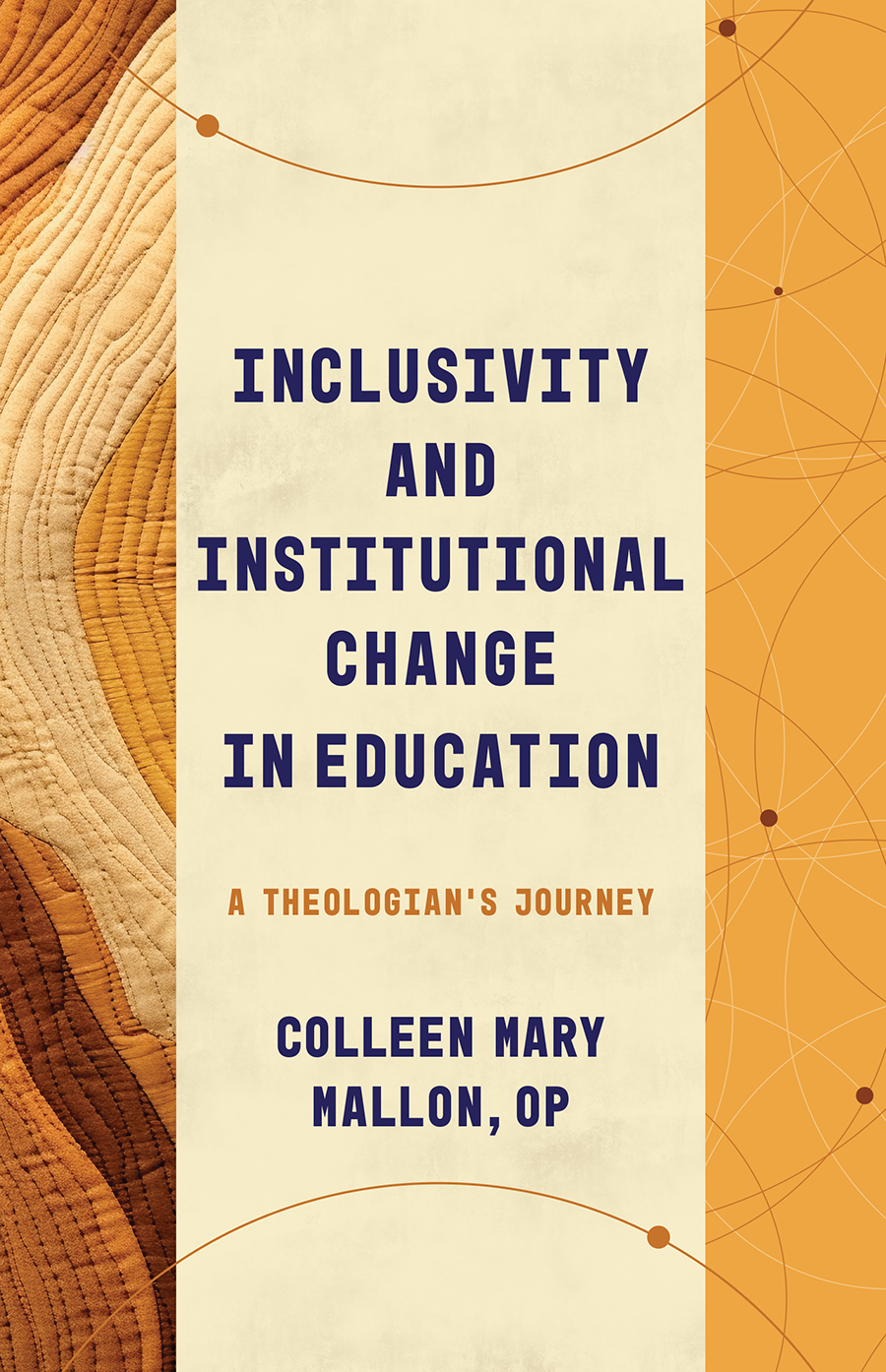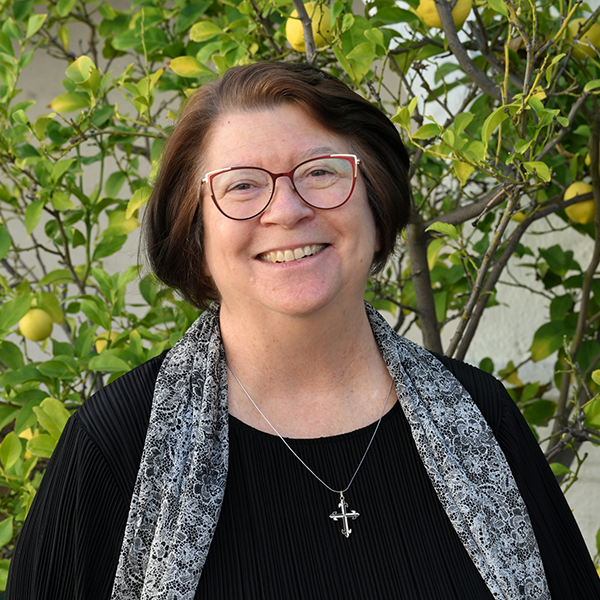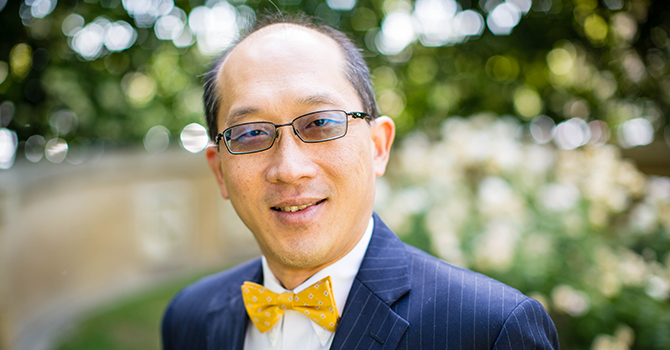A certain weariness accompanies me into this new school year. I Google Nan Merrill’s psalms, and these words appear, inviting me into stillness and a deep recovery of intention and purpose:
Enter into the Silence, into the
Heart of Truth;
For herein lies the Great Mystery
where life is ever unfolding;
Herein the Divine Plan is made known,
the Plan all are invited to serve. …
— Psalm 132
I am a Catholic theologian and Dominican sister, and a Theological Education Between the Times senior fellow. While writing a book in the company of other amazing scholars, I was jolted by an unexpected professional setback — I lost my job as an associate professor. Subsequently, I embarked on a whole new way of doing theology, which I recount in my contribution to the series, “Inclusivity and Institutional Change in Education: A Theologian’s Journey.”

Now, that title definitely was not my first choice. From the beginning, my North Star in writing the book was the idea of embodying veritas. As a Dominican sister, I belong to the Order of Preachers (Dominicans), a religious tradition in the Roman Catholic Church that is over 800 years old, one whose animating charism is the pursuit of truth — to live for veritas. There is likely no Dominican institution in the world without the word “Veritas” prominently displayed. So it was disconcerting when the editors of the series gently but firmly suggested that my original title, “Embodying Veritas,” would not communicate effectively the content of the book.
Though not part of the book’s final title, the notion of embodying veritas remains at the core of my vocation and of how I bring the charism of pursuing the truth in love into my daily ministry of promoting and growing the animating spirit of our organization.
When I enter what Merrill describes as “the Silence” and encounter “the Heart of Truth,” I become profoundly aware that I was made to love this way, to embrace “the Plan all are invited to serve.” So the beginning of this new school year has been a particularly graced time to engage my colleagues in reflection on our charism of veritas.
How do you tend the flame of your institution’s raison d’être? What is the gift of the Spirit that you are called to embody in your time and place? And how are you, as a faith leader, creating the environment where your people are connecting their individual missions with your shared mission?
No matter how one names one’s group’s charism (your spiritual reason for existing), the way to align your mission’s words and deeds is in that infamously long journey from the head to the heart. Connecting our people’s ideals with their own spirits and then bridging their spirits to the organization’s mission is the sacred — and ongoing — work of faith leaders. Ongoing, because no mission is static. It’s forever dynamic, responsive to the inevitable shifts of our social, cultural and political landscapes.
Imagine with me what the pursuit of veritas implies for an organization such as mine. Searching for and speaking toward truth and increasingly aligning our actions with values that support our engagement with our charism entail committing daily to making the gospel of inclusive love and reconciling, restorative practice the center of our being and our doing. This includes being adept at active listening skills and remaining in the conversation when tensions escalate.
But wait: Might we first need to step back and engage in a conversation about our personal understandings, experiences and imaginations about veritas? Can we provide space for personal exploration and group sharing of the values and behaviors that inform what we think truth or integrity looks like?
That is what we did at a recent faculty and staff retreat. We paused to consider again the hallmarks of Dominican spirituality and the four pillars (prayer, study, community and service) that support a lifestyle of contemplatives in action in the service of veritas. Then we introduced these questions for individual reflection:
What truths do I hold?
What do I believe deeply and attempt to live out?
What values support my personal growth in integrity?
What am I doing when I am true?
These questions prompted us to reflect on how our actual practices of integrity guide our being and our doing.
Then we gave each participant a list of 11 statements about truth from luminaries like René Descartes, Émile Zola and Simone de Beauvoir. For example:
There are only two mistakes one can make along the road to truth: not going all the way and not starting.
— often attributed to the Buddha
You can recognize a small truth because its opposite is a falsehood. The opposite of a great truth is another truth.
— Niels Bohr
Preach the truth as if you had a million voices. It is silence that kills the world.
— St. Catherine of Siena
Following personal reflection, I asked members of the community to select one statement that particularly aligned with their values and to meet with others who chose the same statement. The energy in the room was palpable as colleagues, gathered at 11 tables, shared their stories, leaning in to each other with obvious attention and engagement.
Clearly, there is relational energy and capacity for deeper connection when we engage with like-minded folks. But doesn’t embodying veritas ask for more? Here’s the challenge: What might enable our relationships to thrive amid divergent thinking? And what drives the escalation of division and even derision when we disagree?
To address this challenge, we leaders can mine our traditions’ wisdom and practices of discipleship. In my case, I introduced our community to the wisdom of Dominican bishop and martyr Pierre Claverie, who famously disarmed division through friendship, an unrelenting commitment to encounter and dialogue, and a sense of our common humanity:
No one possesses the truth; everyone is seeking it — there certainly are objective truths, but they exceed our grasp and can be attained only through a long journey during which we piece this truth together by gleaning from the different cultures and instances of humanity what others have sought and obtained in their own journey toward the truth.
As we pieced together the fragments of truth gleaned from our retreat that day, we acknowledged that the search for truth is often not a search at all but what Vince Vitale called “a weapon to manipulate, abuse, and control.” Vitale also made a provocative statement that our community recognized as inherently “Dominican”:
We have lost the ability to disagree in love. Even more, we have lost the ability for disagreement to be itself an act of love.
Asking, “What does disagreement as an act of love look like?” we recommitted to enact our charism in this new school year and to be seriously engaged in our mutual efforts to embody veritas.






























